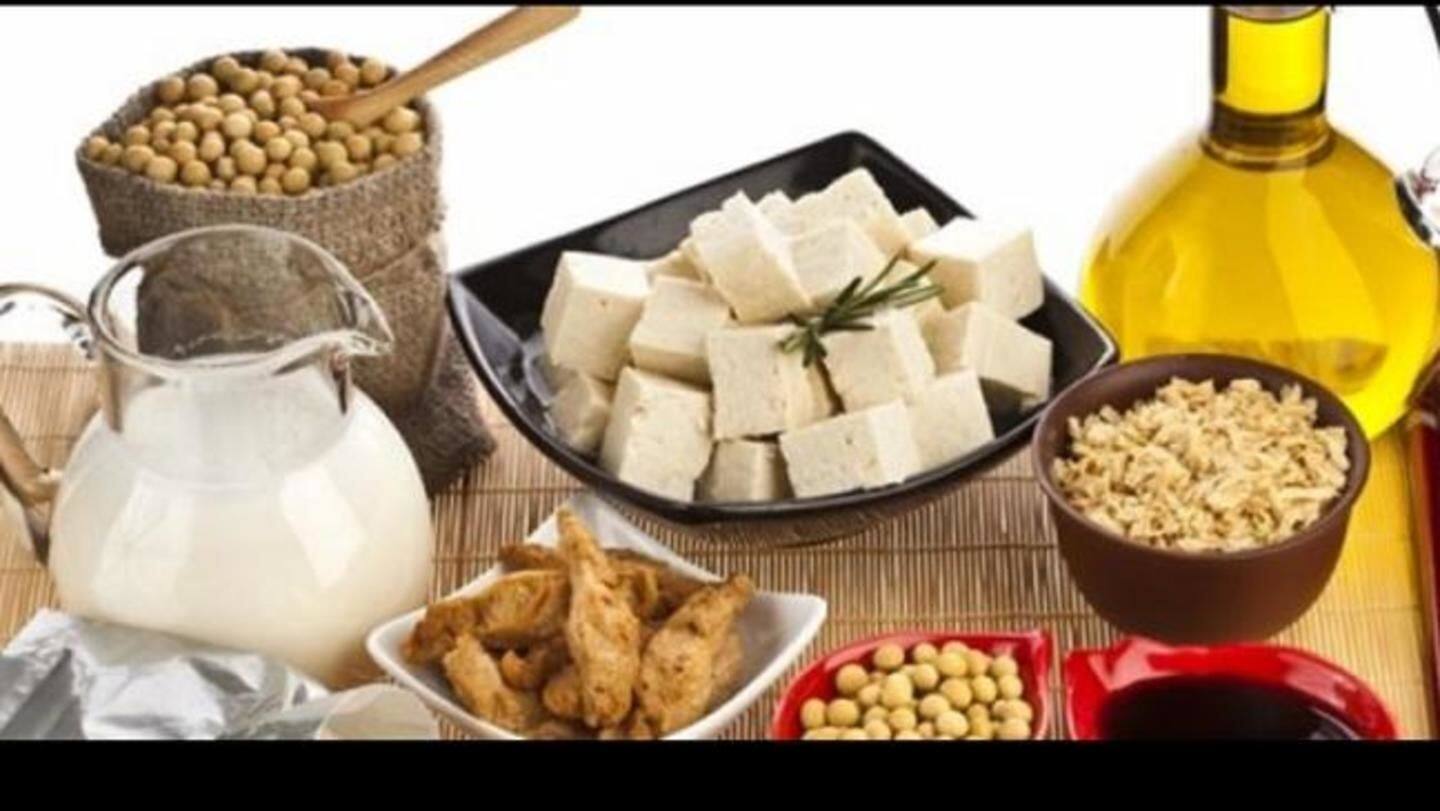
#HealthBytes: Top 5 sources of protein for vegetarians
What's the story
One major diet risk for vegetarians is protein deficiency.
This is owing to the fact that all types of meat are naturally rich in protein, but that's not the case with vegetarian foods. Or so we think.
If properly planned, a vegetarian diet can also supply you with enough proteins.
So, here are top 5 sources of protein for vegetarians.
Soy
Soybean is a powerful protein source for vegetarians
All soy-based food items are great sources of protein, so much so that their protein content is high enough to compete with their non-vegetarian counterparts.
From soybean to soy milk, tofu to soy nuts, there's plenty of high-in-protein soy food items to choose from.
So, as long as a vegetarian's diet includes soy in it, they need not worry about protein deficiency.
Lentils and Pulses
Another reason to love Rajma Chawal?
Another desi way to get more protein into the system for vegetarians is by including more and more lentils, pulses, and beans into their diet.
According to the Harvard School of Public Health, one cup of cooked lentils contains nearly 18g of protein and 15g of fiber, with virtually no saturated fats or sodium.
So keep binging on Rajma Chawal, you'll get more protein.
Oats/Oatmeal
More the oats, more the protein
Not complete protein, but as compared to other grains (wheat and rice), oats are a good source of high-quality protein for vegetarians.
A half-cup of dry-oats ie. 120 ml supplies you with nearly 6 grams of protein and 4 grams fiber.
They also have decent amount of magnesium, zinc, phosphorus and folate.
Above all, who doesn't love a delicious oatmeal for breakfast?
Nuts/Nut Butter
Nuts and nut butter will give you enough protein
Nuts, nut-butter, and other seeds are great protein-rich options for non-meat eaters.
With just a handful of nuts (25-30 grams), you get 5-7 grams of protein, depending on the type of the nut or seed variety.
Further, they're also rich in fiber, healthy fats, iron, calcium, magnesium, and phosphorus.
But, don't munch on too many if you don't want to get fat.
Dairy foods
Milk and cheese to the rescue of protein deficients
In addition to being great source of calcium, dairy products, ie. milk, cheese, yogurt etc. also contain decent amount of protein in them.
One cup full of milk will give you about 8 grams of protein, while a cup of low-fat yogurt contains about 13 grams of dietary protein.
Paneer is another great option, as one ounce of it provides nearly 7 grams protein.